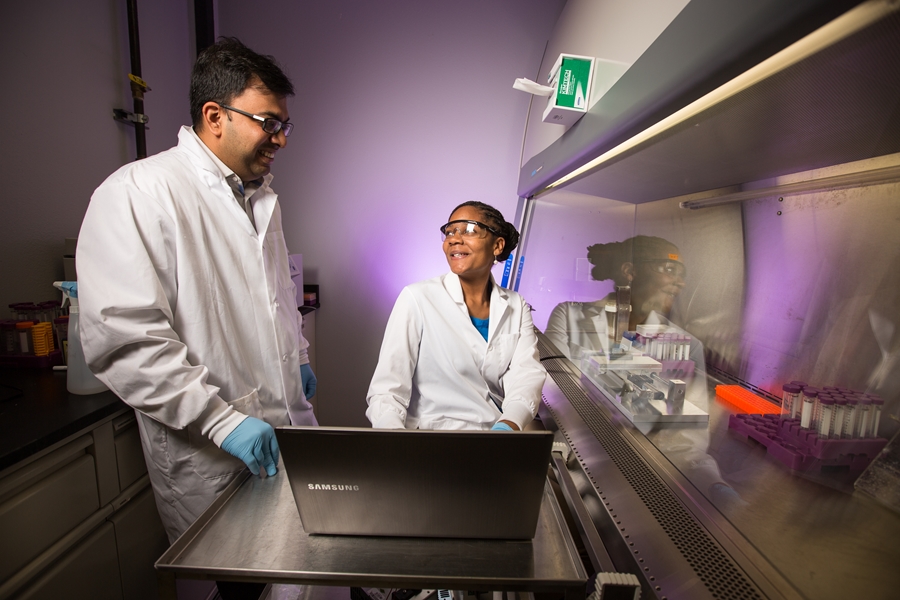
FAYETTEVILLE, Ark. – A team of biomedical engineering researchers at the University of Arkansas have identified a cause of fluid swelling of the brain, or cellular edema,that occurs during a concussion.
The researchers discovered that pre-treating the cells with an existing, FDA-approved drug used for epilepsy and altitude sickness reduces the expression of a specific protein that causes swelling.
Their findings were published in a recent issue of Nature’s Scientific Reports.
“Our study found that mild traumatic brain injury resulted in increased expression of a protein called aquaporin-4, which caused a massive cellular influx of fluid, leading to increased astrocyte cell volume and injury,” said Kartik Balachandran, assistant professor of biomedical engineering. “We then worked with a drug called Acetazolamide. Our results showed that Acetazolamide minimized cell swelling and injury, suggesting a therapeutic role for this drug in reducing the detrimental effects of concussions.”
In addition to Balachandran, who led the study, the research was conducted by Nasya Sturdivant, biomedical-engineering doctoral candidate; Jeffrey Wolchok, assistant professor of biomedical engineering; and partners at the FDA’s National Center for Toxicological Research in Jefferson, Arkansas.
Mild traumatic brain injury, also known as a concussion, is a devastating condition that is commonly experienced in car accidents, full-contact sports and battlefield injuries. One of the main factors that leads to the high death rate in patients who experience mild traumatic brain injury is the swelling or edema of astrocytes, the most abundant cell type in the brain.
The researchers engineered a benchtop bioreactor to examine astrocyte cells. This device helped them see that mild traumatic brain injury led to an increased expression of aquaporin-4, the protein that causes a large cellular influx of fluid, which in turn leads to increased astrocyte cell volume.
“This study demonstrates the collaborative neuro-engineering efforts that are contributing to both diagnostic and therapeutic methods for addressing traumatic brain injury,” said Raj Rao, professor and chair of the Department of Biomedical Engineering at the University of Arkansas.
The research was funded by the National Science Foundation.
About the University of Arkansas: The University of Arkansas provides an internationally competitive education for undergraduate and graduate students in more than 200 academic programs. The university contributes new knowledge, economic development, basic and applied research, and creative activity while also providing service to academic and professional disciplines. The Carnegie Foundation classifies the University of Arkansas among only 2 percent of universities in America that have the highest level of research activity. U.S. News & World Report ranks the University of Arkansas among its top American public research universities. Founded in 1871, the University of Arkansas comprises 10 colleges and schools and maintains a low student-to-faculty ratio that promotes personal attention and close mentoring.
Contacts
Kartik Balachandran, assistant professor, biomedical engineering
College of Engineering
479-575-3376, kbalacha@uark.edu
Matt McGowan, science and research communications officer
University Relations
479-575-4246, dmcgowa@uark.edu